Extracurricular Academic

Can extracurricular activities help in getting scholarships for college ?
**Extracurricular Activities and College Scholarships** This article explores the role of extracurricular activities in securing scholarships for college. It highlights how these activities help in developing essential life skills, showcasing talents, and building a strong resume, which are highly valued by scholarship committees. The article also discusses specific ways in which extracurricular activities can aid in getting scholarships, such as demonstrating leadership skills and academic achievements, enhancing personal statements, and increasing scholarship opportunities. Overall, it emphasizes the importance of participating in extracurricular activities throughout one's academic journey to improve chances of receiving college scholarships.

How to balance academics and extracurricular activities ?
Balancing academics and extracurricular activities is crucial for a well-rounded education. Here are some tips on how to achieve this balance: ## Prioritize Your Time 1. Create a schedule: Make a list of all your academic and extracurricular commitments, including classes, homework, study time, and extracurricular activities. Assign specific times for each task and stick to the schedule. 2. Set priorities: Identify which tasks are most important and prioritize them accordingly. For example, if you have an upcoming exam, you may need to allocate more time to studying than participating in a sports game. 3. Learn to say no: It's okay to decline invitations or opportunities if they conflict with your academic responsibilities. Be honest with yourself about what you can realistically handle. ### Manage Your Time Efficiently 1. Use a planner: Keep track of deadlines, assignments, and extracurricular events in a planner or calendar app. This will help you stay organized and avoid last-minute cramming sessions. 2. Break down tasks: Large projects or assignments can be overwhelming. Break them down into smaller, manageable tasks and tackle them one at a time. 3. Minimize distractions: Turn off your phone, close unnecessary tabs on your computer, and find a quiet place to study. Eliminating distractions will help you focus and complete tasks more efficiently. ### Seek Support When Needed 1. Talk to teachers: If you're struggling to balance academics and extracurriculars, talk to your teachers. They may be able to offer advice or adjust deadlines to accommodate your schedule. 2. Join a study group: Studying with peers can help you stay motivated and accountable. Plus, it's a great way to make new friends who share similar interests. 3. Seek guidance from mentors: Find someone who has successfully balanced academics and extracurriculars before, such as an older sibling or a teacher. They can provide valuable insights and advice based on their experiences.
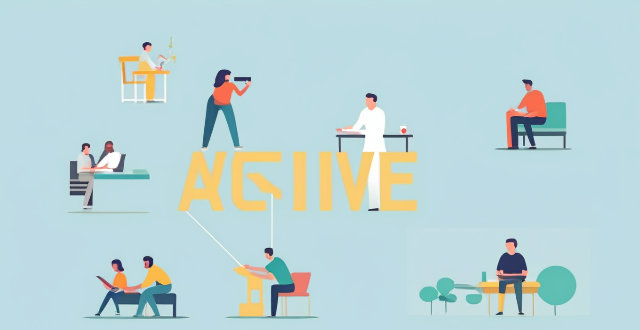
Can extracurricular activities improve academic performance ?
Extracurricular activities can improve academic performance by developing time management skills, increasing motivation and engagement, enhancing social skills and networking, and providing stress relief and mental health benefits.

How do extracurricular activities help in developing leadership skills ?
Extracurricular activities are crucial for developing leadership skills in students. They provide opportunities to take on responsibilities, make decisions, work collaboratively, and build confidence. These experiences teach time management, task prioritization, problem-solving, risk assessment, consensus building, effective communication, cooperation, teamwork, overcoming fears, self-efficacy, and feedback for growth. Overall, extracurricular activities help students become effective leaders in their academic lives and future careers.

How do I balance my academic responsibilities with extracurricular activities ?
Balancing academic responsibilities and extracurricular activities requires effective time management, prioritization, setting realistic expectations, seeking support when needed, maintaining a healthy lifestyle, and reflecting on progress to adjust strategies.

How do extracurricular sports activities contribute to overall student development ?
The text discusses the importance of extracurricular sports activities in student development. It highlights that these activities not only promote physical fitness but also contribute to various aspects of personal growth, including social skills, leadership abilities, and time management. The author explains how participating in sports can help students maintain good physical health, develop social skills through teamwork, foster leadership abilities, and learn effective time management skills. The text concludes that extracurricular sports activities are an essential component of overall student development as they offer numerous benefits beyond just physical fitness.

How do extracurricular activities contribute to the development of student leaders ?
**The Role of Extracurricular Activities in Nurturing Student Leaders** **Skill Development:** Extracurricular activities offer a platform for students to acquire and refine various skills, such as communication, teamwork, time management, and problem-solving. **Confidence Building:** Involvement in extracurricular activities often leads to increased self-assurance through taking initiative and overcoming challenges. **Interpersonal Abilities:** Engaging in extracurricular activities fosters key interpersonal abilities like networking, empathy, emotional intelligence, and influence. **Real-World Experience:** Extracurricular activities simulate real-world experiences where leadership is crucial, teaching organizational skills and adaptability. **Responsibility and Commitment:** Participation teaches responsibility and commitment through accountability and dedication to practice or training. **Conclusion:** Extracurricular activities serve as a laboratory for students to experiment with leadership styles, make mistakes, learn from them, and grow into well-rounded individuals ready to take on future challenges.

What are the benefits of extracurricular activities for teenage development ?
This article discusses the benefits of extracurricular activities for teenage development, including improved social skills, personal growth and self-discovery, academic success, physical health and well-being, and lifelong skills and habits.

What is the impact of school size on the overall learning experience ?
School size affects academic performance, social interactions and extracurricular activities. Small schools offer personalized attention and strong teacher-student relationships but may lack diversity and extracurricular options. Large schools provide diverse course offerings and a wide range of extracurricular activities but may have limited personalized attention and increased competition. Choosing the right school size depends on individual needs and preferences for the best learning experience.

How can parents balance academic demands with their child's athletic pursuits ?
The text discusses the challenge of balancing academic demands and athletic pursuits for children. It offers tips on how to achieve this balance, such as setting clear goals, creating a schedule, communicating with teachers and coaches, encouraging time management skills, fostering a supportive environment, and emphasizing the importance of balance. The purpose is to help parents guide their children in excelling both academically and athletically by maintaining a healthy equilibrium between the two areas.
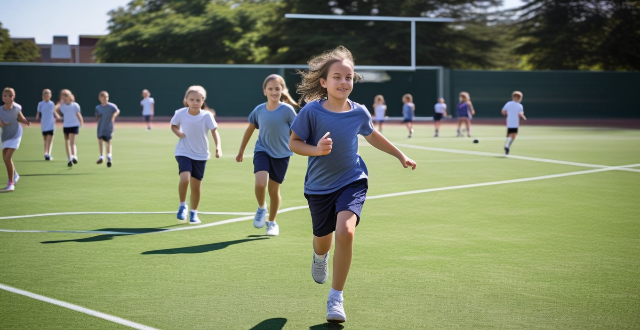
In what ways can schools encourage participation in sports without sacrificing academic rigor ?
Participation in sports is an essential aspect of a student's overall development. However, schools often face the challenge of balancing academic rigor with sports participation. This article discusses ways schools can encourage participation in sports without sacrificing academic rigor, including integrating sports into the curriculum, providing support for student-athletes, promoting a culture of wellness, collaborating with parents and community members, and offering incentives for academic success. By implementing these strategies, schools can create an environment where students can thrive both academically and athletically.

How to manage time effectively while participating in multiple extracurricular activities ?
Effective Time Management for Multitasking in Extracurricular Activities is crucial to ensure personal growth and skill development while balancing various commitments. Strategies include prioritizing activities, planning ahead, creating a schedule, minimizing distractions, delegating when possible, reflecting and adjusting, maintaining a healthy lifestyle, and avoiding overcommitment. Following these steps helps manage time effectively and enjoyably in multiple extracurricular activities, with a focus on adaptability and self-care.

How can educators balance the importance of physical fitness with academic achievement ?
Balancing physical fitness and academic achievement in education is crucial for fostering well-rounded individuals. Educators can promote a holistic approach, set realistic expectations, implement strategies such as smart scheduling and cross-curricular learning, create a supportive environment with adequate resources and parental involvement, assess and recognize progress in both areas, role model healthy habits, and continuously improve their approach based on feedback. By doing so, students can receive an education that nurtures both the body and mind, preparing them for success in all aspects of life.

What are the most popular extracurricular activities in high school ?
The text discusses the various extracurricular activities available in high school. These activities provide opportunities for students to pursue their interests, develop new skills, and build relationships outside of the classroom. The most popular activities include sports, music and theatre, academic clubs, community service and volunteering, hobby and special interest clubs, and athletic support groups. Participating in these activities can help students discover their interests, build character, and create lasting memories.

What are the benefits of participating in extracurricular activities ?
The text discusses the advantages of participating in extracurricular activities. It mentions that such activities promote personal development, socialization and networking, time management, leadership experience, and college and career preparation.
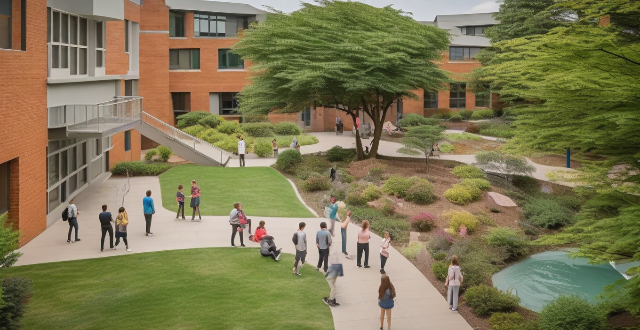
How do I compare different schools based on their academic performance ?
When comparing different schools based on their academic performance, consider factors such as school rankings, standardized test scores, graduation rates and college acceptance rates, availability of advanced placement (AP) courses and dual enrollment options, extracurricular activities and clubs, student-teacher ratio and class size, and reviews from current and former students, parents, and educators.
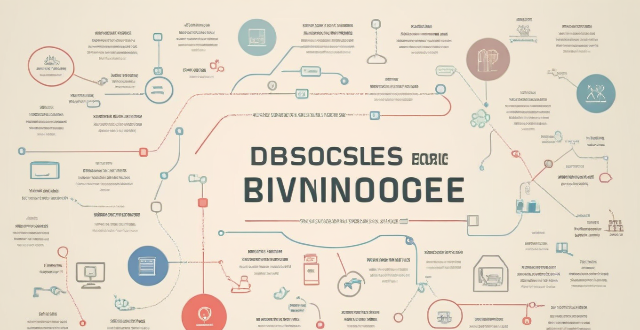
What is the difference between academic and non-academic writing ?
The article discusses the differences between academic and non-academic writing in terms of purpose, audience, style, structure, and language features. Academic writing aims to convey complex ideas and research findings to a specialized audience using formal, objective, and precise language, while non-academic writing focuses on informing, entertaining, or persuading a general audience using informal, subjective, and general language. The structure of academic writing is rigid and includes detailed analysis and extensive citations, whereas non-academic writing has a flexible structure, narrative style, and limited references. Language features also differ, with academic writing using complex sentences, passive voice, and abstract concepts, while non-academic writing prefers simple sentences, active voice, and concrete examples.

What are the benefits of joining a sports team as an extracurricular activity ?
Joining a sports team as an extracurricular activity can provide numerous benefits for students, including improved physical fitness and health, socialization and teamwork skills, time management and discipline, leadership and responsibility, mental health and stress relief, and the development of lifelong skills and habits. Overall, participating in sports can have a positive impact on various aspects of student life.

What should I look for in a school's extracurricular activities program ?
When considering a school's extracurricular activities program, look for diversity of options, quality leadership, opportunities for growth and development, and inclusivity and accessibility. A well-rounded program will foster personal growth, leadership skills, and community among participants.

What is academic integrity ?
Academic integrity is a fundamental principle governing the conduct of research, teaching, and learning in academic institutions. It encompasses values and ethical standards promoting honesty, fairness, respect, and responsibility among students, educators, and researchers. The goal is to maintain trustworthiness and credibility by adhering to high ethical standards. Core values include honesty, fairness, respect, and responsibility. Key aspects are avoiding plagiarism, fabrication, cheating, multiple submissions, and collusion. Violating academic integrity can lead to loss of reputation, disciplinary action, legal consequences, diminished career prospects, and ethical implications. Adhering to academic integrity promotes a fair and just academic environment.

What are the consequences of violating academic integrity principles ?
Violating academic integrity principles can lead to serious consequences on both individual and institutional levels, including academic penalties, damage to reputation, difficulty gaining acceptance into programs or securing employment, emotional distress, and potential loss of accreditation for institutions. It is essential for students to understand the importance of maintaining academic integrity to protect their personal and professional futures, as well as the reputation of their educational institutions.
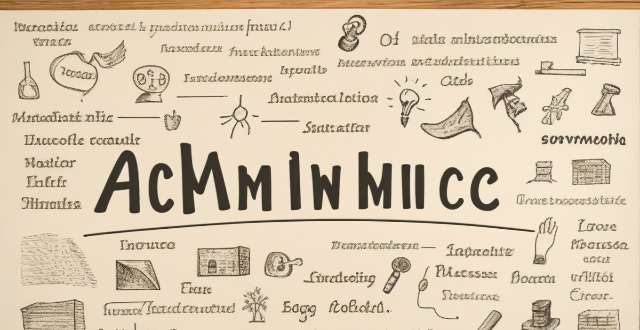
What are some tips for effective academic writing ?
Effective academic writing is essential for success in higher education. To improve your skills, understand the assignment, plan your work, conduct research, write clearly and concisely, use evidence to support arguments, edit and revise your work, follow academic integrity guidelines, use visual aids when applicable, stay focused on the main point, and seek feedback from others.

How can schools improve student mental health ?
Improving student mental health is crucial for academic success and overall well-being. Schools can help by creating a supportive environment, implementing mental health programs, providing access to resources, promoting healthy habits, addressing bullying and harassment, offering extracurricular activities, monitoring academic pressure, and encouraging self-care. By implementing these strategies, schools can create an environment that supports the mental health of all students, allowing them to thrive both academically and personally.
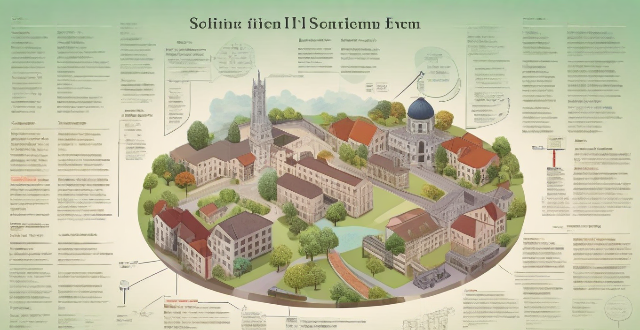
What are the key factors to consider when choosing an international school or program ?
When selecting an international school or program, consider factorsWhen selecting an international school or program, consider factorsation and reputation, curriculum and extracurricular activities and opportunities for internships or study abroad, cultural diversity and inclusivity, location and facilities, and cost and financial aid options. These considerations can help ensure that the chosen institution aligns with your academic goals and personal preferences, fostering both academic success and personal growth.

What are the key factors to consider when choosing a school ?
Choosing a school involves evaluating academic programs, teacher qualificationChoosing a school involves evaluating academic programs, teacher qualificationcurricular activities, location, By taking these factors into account, you can select a school that aligns with your interests, goals, and budget.

What are the long-term effects of breaches in academic integrity on one's career ?
The long-term effects of breaches in academic integrity can be severe and far-reaching, including damaged reputation, limited career opportunities, and potential legal consequences. It is essential for students, researchers, and educators to uphold the principles of academic integrity to ensure the success of their careers and the integrity of their respective fields.

Can you give examples of academic dishonesty ?
Academic dishonesty refers to any behavior that compromises the integrity of academic work. It can take many forms, including cheating, plagiarism, falsification of data, and improper collaboration on assignments. Such actions not only undermine the trustworthiness of academic institutions but also hinder students' learning and development. Some examples of academic dishonesty include using cheat sheets or notes during exams, copying from others, using unauthorized devices, impersonation, submitting another's work as your own, unauthorized collaboration, direct plagiarism, mosaic plagiarism, fabrication, manipulation, selective reporting, group assignments as individual work, and unequal contribution. Engaging in academic dishonesty can lead to serious consequences, such as failure of the assignment or course, suspension or expulsion from school, and damage to reputation and future opportunities. It is essential for students to understand the importance of academic integrity and the long-term impact of their actions. By maintaining honesty in their academic pursuits, they ensure a fair and trustworthy educational environment for all.

Can sports improve academic performance in adolescents ?
Sports can positively impact academic performance in adolescents by improving physical health, mental well-being, and social skills. Studies show a positive correlation between sports participation and academic achievement, with athletes often achieving higher grades and increased college admission rates. However, individual differences and external factors must also be considered when evaluating this relationship.

How can students maintain academic integrity in their studies ?
The text discusses the importance of maintaining academic integrity in education and outlines several ways for students to do so. It emphasizes understanding the concept of academic integrity, adhering to school policies, citing sources properly, avoiding plagiarism, being honest in assessments, respecting intellectual property rights, maintaining confidentiality, reporting incidents of misconduct, and seeking help when needed. The text concludes that maintaining academic integrity is crucial for students to achieve success in their academic pursuits and beyond.

How do I find scholarships specific to my field of study ?
Finding scholarships specific to your field of study can be a challenging task, but it is definitely worth the effort. Here are some steps you can take to find scholarships that match your academic interests and career goals: 1. Research your field thoroughly to identify key organizations, associations, and institutions that offer scholarships related to your area of interest. 2. Use online scholarship search engines such as Fastweb, ScholarshipOwl, and Cappex to find scholarships based on your academic achievements, extracurricular activities, and career goals. 3. Check with your school's financial aid office for information about scholarships specific to your field of study and resources such as scholarship databases or lists of local organizations that offer scholarships. 4. Attend scholarship workshops and events hosted by your school or local community organizations to network with professionals in your field and learn about scholarship opportunities. 5. Contact professional organizations and associations in your field directly to find out about available scholarships and application requirements.